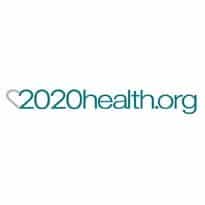Patients value online transactional services above the ability to view their electronic medical record; and patient access portals must be highly usable to succeed, a new report says.
2020health launched its report, ‘Personal health records: putting patients in control?’ with a round table at Church House in Westminster on Tuesday.
The government has pledged that all NHS patients will have online access to their GP record by 2015.
However, report author and 2020health consultant director John Cruickshank said that what people value most is access to transactional services such as online booking and messaging services.
He added that the Department of Health has predicted 5% uptake of PHRs by 2015, which should generate some savings.
The DH expects that, on average, access to their records should save these patients one visit a year to their GP, a couple of phone calls and some travel time.
The report, which is based on face-to-face and online surveys of 250 patients, says that use of PHRs should also improve levels of patient self-management, knowledge, communication, satisfaction and trust.
It concludes that the benefits of PHRs are greatest for those living with chronic conditions or disability, or in remote areas without easy access to primary care services.
“Record access requires behavioural change, with patients becoming more involved and informed as equal partners in their care, making positive healthy choices to improve or maintain their health,” it says.
“Interest will only be captured where PHRs are demonstrably useful, fitting well into people’s daily lives.
"Other prerequisites features are that the PHR must be secure, reliable and easy to use.
“The use of apps could be key in driving PHR uptake, especially where they integrate well with NHS health records.”
Dr Kate Christensen, medical director of Kaiser Permanente’s Internet Services Group, told event attendees that the US company has 4m registered users of PHRs – an uptake rate of around 60%.
Kaiser Permanente’s experience is that people do not often access their medical record, but there is high uptake of the message centre, appointment booking and order prescriptions. The most common reason for logging-on is to check test results.
Dr Christensen said there were initially concerns about people seeing test results without the support of a doctor, but this has not been a problem and security issues have been “vanishingly small."
She said patients who book online are more likely to keep their appointments and tend to cancel earlier than others do.
Patients who use the online messaging system to email their doctor also have better blood pressure and cholesterol control.
Online messaging does involve more work for doctors and this needs to be factored into their day, she added.
To encourage culture change amongst clinicians she advocated the use of local clinical champions and said once a programme gets started: “It takes on a life of its own.”
“Overall, the physicians would never go back, it’s become very much integrated into how we practice medicine.”
Dr Christensen also emphasised the importance of usability and said this is something being constantly worked on.
Health informatics and data accessibility consultant Dr Howard Leicester stressed that it is important to involve end users in the development of PHRs as many elderly or disabled people do not have access to the internet.
EHealth Insider reported this week that a stakeholder group led by the Royal College of GPs has been formed to coordinate the delivery of patient records access.
The 2020health report says this group should not only oversee the delivery of the government commitment, but encourage the more widespread adoption of PHRs.
It says the group should work to ensure adequate incentives are provided to drive uptake, encourage stakeholder engagement across clinical and patient groups and improve awareness to create patient demand.

